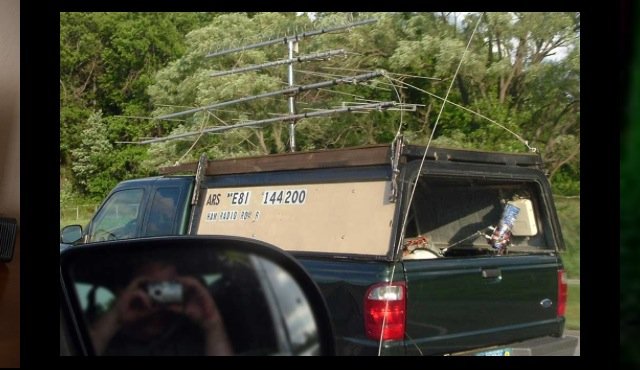Bullwinkle
Active Member
- May 2, 2013
- 44
- 6
There is only one form of electronic communication that can withstand natural disasters, economic collapses and the Zombie Apocalypse.
Amateur Radio. It's more than a hobby.
Amateur radio operators, or HAMs, communicate at all hours of the day, from their home, their vehicle, and in the most remote locations on earth, communicating both in their local community, different states and different countries around the world. Many of the Ham operators focus their hobby on emergency communications, and can operate from anywhere at anytime, with the use of their portable radios, portable antennas and minimal logistics, to aid and assist local and statewide emergency services, both collecting and relaying information about an affected area, to the latest news, announcements for residents of the area, watching weather, and even manning evacuation centers.
There is truly a concerted effort of Ham Radio operators statewide in Louisiana to provide emergency communications throughout the state, preparing for the next event.
Both local and state governments support Ham Radio, not as a last resort, but as an additional communication infrastructure in the case that an area emergency would occur.
These are just some of the organizations and government entities:
American Red Cross
Salvation Army
Louisiana statewide Parish Emergency Operation Centers
Local Hospitals
National Weather Service
So be prepared for the next emergency, and get your license, and then get your family involved. This is a great way to stay in contact, because as we have found out, cell phones and electricity are the first to go.
Not so with Ham Radio. It is the most survivable of all electronic communications, regardless of events.
We all should have the bottled water, gas cans, propane, generators, batteries, flashlights, and non-perishable foods. Ham Radio is the next step.
All it requires to get started is a license test and an inexpensive radio. The rest will grow from there.
If you know one, ask them how to get started. If you don't, visit www.laarrl.org.
Amateur Radio. It's more than a hobby.
Amateur radio operators, or HAMs, communicate at all hours of the day, from their home, their vehicle, and in the most remote locations on earth, communicating both in their local community, different states and different countries around the world. Many of the Ham operators focus their hobby on emergency communications, and can operate from anywhere at anytime, with the use of their portable radios, portable antennas and minimal logistics, to aid and assist local and statewide emergency services, both collecting and relaying information about an affected area, to the latest news, announcements for residents of the area, watching weather, and even manning evacuation centers.
There is truly a concerted effort of Ham Radio operators statewide in Louisiana to provide emergency communications throughout the state, preparing for the next event.
Both local and state governments support Ham Radio, not as a last resort, but as an additional communication infrastructure in the case that an area emergency would occur.
These are just some of the organizations and government entities:
American Red Cross
Salvation Army
Louisiana statewide Parish Emergency Operation Centers
Local Hospitals
National Weather Service
So be prepared for the next emergency, and get your license, and then get your family involved. This is a great way to stay in contact, because as we have found out, cell phones and electricity are the first to go.
Not so with Ham Radio. It is the most survivable of all electronic communications, regardless of events.
We all should have the bottled water, gas cans, propane, generators, batteries, flashlights, and non-perishable foods. Ham Radio is the next step.
All it requires to get started is a license test and an inexpensive radio. The rest will grow from there.
If you know one, ask them how to get started. If you don't, visit www.laarrl.org.
Last edited:






